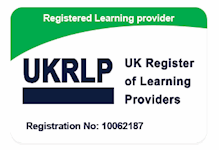Ethical Hacking: Honeypots, IDS and Firewalls
Free E - Certificate Included | CPD & IAP Accredited | Access for 365 days | No Hidden Fee
Study365
Summary
- Exam(s) / assessment(s) is included in price
Overview
Ethical Hacking: Honeypots, IDS and Firewalls
Hacking refers to the unauthorized usage or access to the information in a computer or a network. Hacking is mainly used to steal information and user identity, get access to sensitive information and to disable computer networks and websites. Hackers can get unauthorized access into applications and databases as well. Organizations use IDS, honeypots and firewalls in their organizational systems in order to monitor and prevent hacking and other malicious activities within the organization. IDS is mainly used to detect and report unauthorized activities to the organization, whereas honeypots and firewalls are used to both detect and prevent unauthorized activities directed at an organization.
Hacking has become a global security concern in the modern digital world. Certain organizations have opted to employ hackers within their organizations in order to identify security threats in the company systems and to prevent theft and other cyber related crimes. There are currently over a million Cyber Security job openings globally, and demand is greatly outpacing supply. Therefore, a job in cyber security is the ideal career option if you expect your job to have challenges, opportunities for progression and a higher salary. This course is for both beginners and IT pros looking to get certified and land an entry level Cyber Security job position. This course will train you on how to confuse, detect, and prevent intrusion. You will also learn about Intrusion Detection Systems (IDS), Snort, Honeydrive installation, and advanced perimeter security. By the time you complete this course, you will know all about firewalls, LAN security, threat management, and DNSSec.
* Free E-certificate (No additional cost for E-certificates)
CPD
Course media
Description
Learning outcomes
- Learn how to confuse, detect, and prevent intrusion.
- Learn about Intrusion Detection Systems (IDS)
- Understand about Snort, Honeydrive installation, and advanced perimeter security.
- Understand about firewalls, LAN security, threat management, and DNSSec.
Course Curriculum
1: Intrusion Detection Systems
2: Snort
3: Advanced Ids
4: Honeypots
5: Honeydrive Installation
6: Kippo Ssh Honeypot
7: Firewalls
8: Advanced Perimeter Security
9: Lan Security
10: Threat Management
11: Dnssec
Access duration
The course will be directly delivered to you, and you have 12 months access to the online learning platform from the date you joined the course. The course is self-paced and you can complete it in stages, revisiting the lectures at any time.
Method of assessment
At the end of the course, you will have one assignment to be submitted (you need a mark of 65% to pass) and you can submit the assignment at any time. You will only need to pay £19 for assessment and certification when you submit the assignment. You will receive the results within 72 hours of submittal, and will be sent a certificate in 7-14 days if you have successfully passed.
Certification and awarding body
Those who successfully complete the course will be awarded the Ethical hacking: Honeypots, IDS and firewalls certificate by CPD & iAP. The qualification will make you valuable to employers, and your motivation at gaining new skills will be recognised.
Who is this course for?
- IT students
- Job seekers
- IT professionals
- Anyone interested in learning about Honeypots, IDS and firewalls
Requirements
Learners must be age 16 or over and should have a basic understanding of the English Language, numeracy, literacy, and ICT.
Career path
- Security officer – £20,576 per annum
- Software developer – £30,661 per annum
- Information security officer – £33,317 per annum
- Cyber security analyst – £30,945 per annum
Questions and answers
Currently there are no Q&As for this course. Be the first to ask a question.
Reviews
Currently there are no reviews for this course. Be the first to leave a review.
Legal information
This course is advertised on reed.co.uk by the Course Provider, whose terms and conditions apply. Purchases are made directly from the Course Provider, and as such, content and materials are supplied by the Course Provider directly. Reed is acting as agent and not reseller in relation to this course. Reed's only responsibility is to facilitate your payment for the course. It is your responsibility to review and agree to the Course Provider's terms and conditions and satisfy yourself as to the suitability of the course you intend to purchase. Reed will not have any responsibility for the content of the course and/or associated materials.





